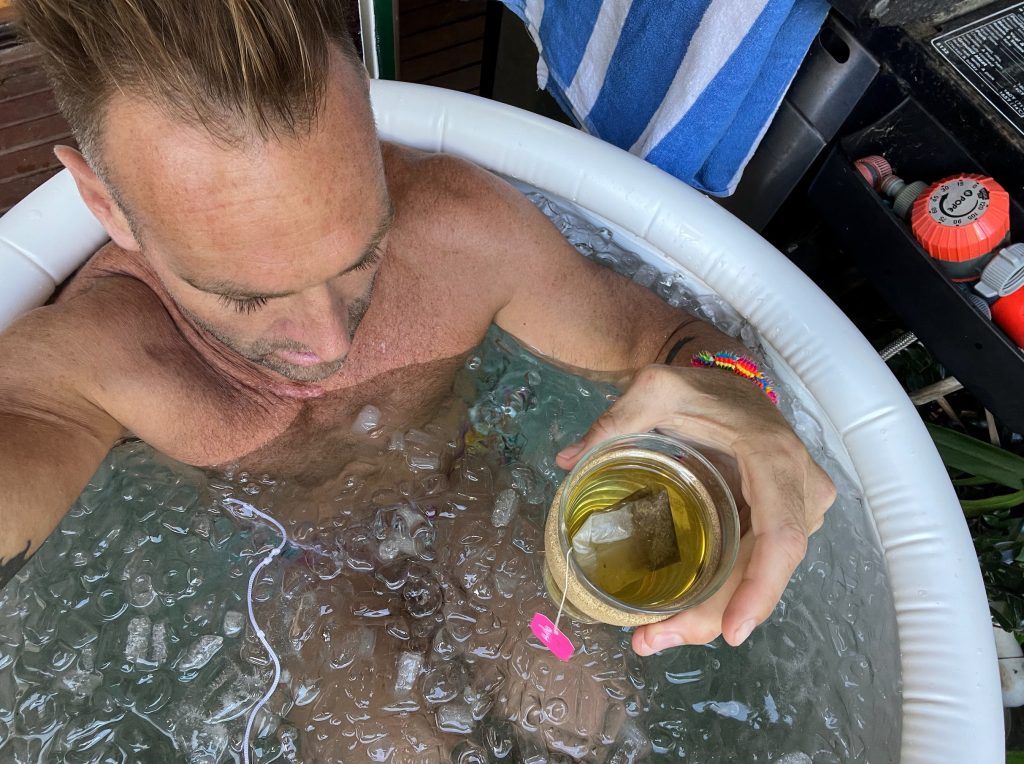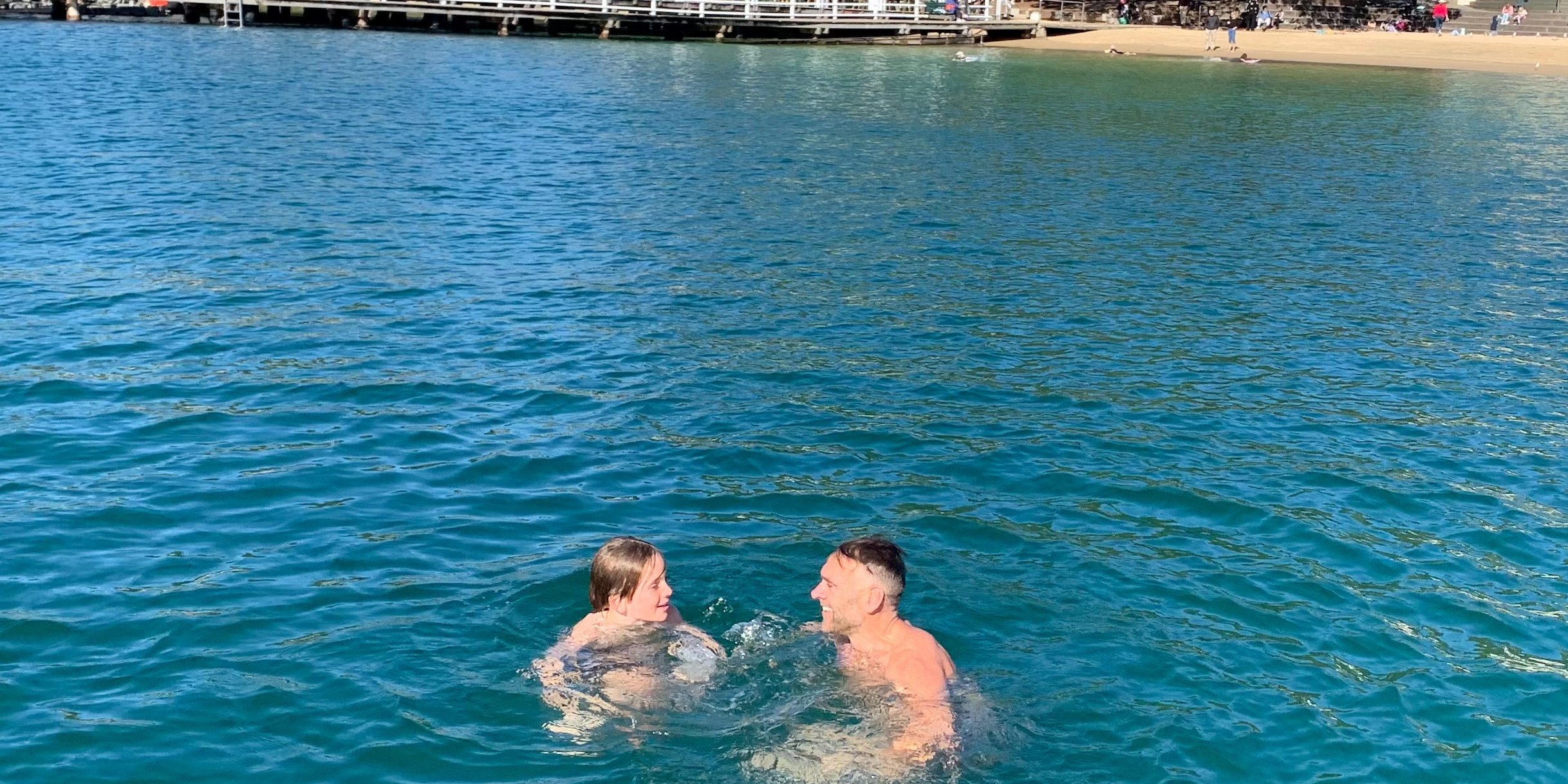For years, I watched my dad leap into the ocean every morning, as if it were some joyful ritual. Meanwhile, “I stood” on the shoreline thinking, What the hell is he doing? The idea of voluntarily hurling myself into freezing water before the sun had properly risen seemed… ridiculous. Unpleasant. Borderline insane.
But everything changed in mid-2022. I had emotionally hit rock bottom. The heaviness of depression sat on me like wet cement—paralysing, numbing, and distorting everything. I was desperate to feel something, to move, to break the loop of inertia that was keeping me stuck. As part of a wellness plan I needed to follow to heal, I had to get myself to the beach every day for a month. So one cold winter morning, I stood at the edge of the Balmoral Pier, took a deep breath, and jumped.
That jolt of cold water cracked something open. It didn’t fix me in an instant, but it cut through the fog—just enough. I swam to shore with teeth chattering, but my heart was pumping. I had taken one small, defiant action against the tide of depression. And that mattered.
Three years later, I’m still doing it. Not every single day, but more often than not, I start my mornings by diving from that same spot. What began as a desperate act of self-rescue has turned into something sacred. A ritual.

First, jumping into the ocean each morning has become a form of discipline. The water is usually between 14–16 degrees Celsius in July, and believe me, most days, I do not feel like doing it. But I do it anyway. That act of overriding resistance bleeds into the rest of my life. It makes it easier to tackle the “I-don’t-want-to-do-it” tasks—like difficult conversations, workouts, admin, or anything that requires effort. The cold becomes a reminder that discomfort is temporary, and action builds momentum.
Second, there’s a moment that happens after a few minutes in the water. The shock settles. The body adjusts. A strange warmth rises, and with it, a sense of calm. It’s as if the ocean absorbs your emotional noise—the anxiety, the sadness, the stress—and gives back clarity. That part is hard to explain. But I know that when I’m in the water, I feel stripped back and human. Whatever I was carrying feels lighter.
There’s a kind of poetry to it: diving into discomfort to find peace.
So, if you’re struggling to move, to feel, to function, start somewhere. Even if that somewhere is standing barefoot on the shoreline. Then, one day, you might jump. Maybe that jump will change you.
You don’t need a perfect morning routine or the latest cold plunge tub. You need one moment of courage, repeated often.
The ocean taught me that. And now, I can’t imagine starting the day any other way.


